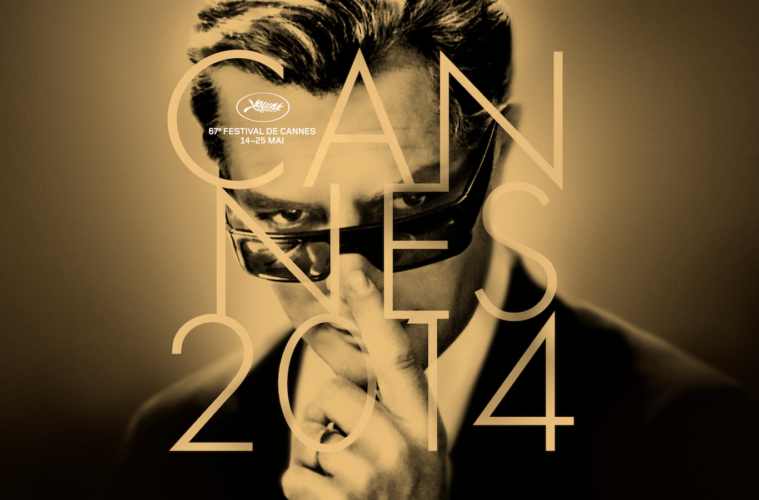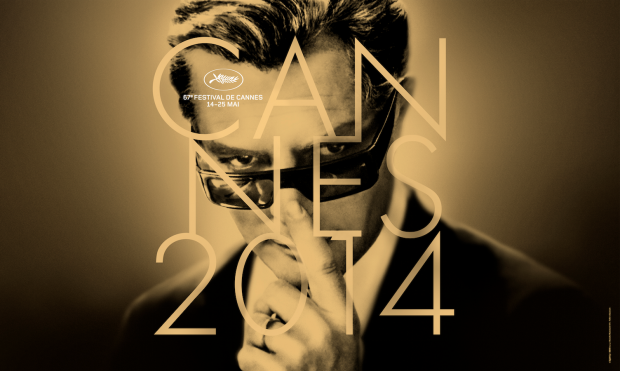
Yes, Godzilla has us wishing more summer tentpoles will measure up to it, but the finest event this season for a fan of film is easily the Cannes Film Festival. Kicking off this week, a selection of the year’s finest cinematic works will be unveiled in France — and while it could be a while until some of the films are actually in front of audiences here, we’ll be providing in-depth coverage.
To gear up for festivities, we’ve selected thirty films that should be on your radar, including competition, Un Certain Regard, Critics Week, Directors’ Fortnight and more. In order to follow our updates, make sure to stay tuned to the site, our Twitter, Facebook, as well as Peter Labuza (@labuzamovies), who’ll be providing our coverage from the festival. In the meantime, put the 30 films listed below on your radar and let us know what you’re most looking forward to in the comments.
30. The Wonders (Alice Rohrwacher)
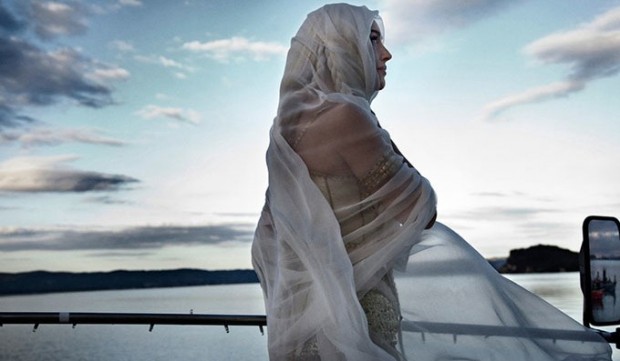
Having only made one narrative feature prior (the acclaimed Corpo celeste), we’re not quite sure what to expect from Alice Rohrwacher‘s sophomore effort, but that unknown quantity is one of the reasons we’re greatly looking forward to it. With a striking, but somewhat unrevealing trailer, we learned the basics of the story of a family who lives in the Umbrian countryside whose life shifts with arrival of Martin, a young German criminal on a rehab program. The Wonders is also the only Italian feature in the competition line-up and with last year’s entry from the country, The Great Beauty, going on to have much success, hopefully the same is in store here. – Jordan R.
29. Bird People (Pascale Ferran)
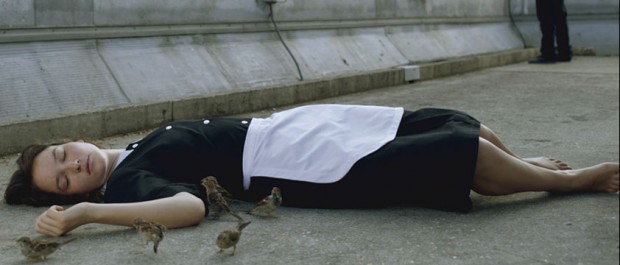
After an enigmatic, alluring teaser for the latest film from Lady Chatterley director Pascale Ferran, Bird People entered our radar and it’s one were greatly looking forward to at the festival, premiering in the Un Certain Regard section. Starring Josh Charles, Radha Mitchell, and Mathieu Amalric, the drama weaves the stories together of two strangers at a Paris airport, one of which experiences a life-altering supernatural occurrence. – Jordan R.
28. The Salt of the Earth (Wim Wenders and Juliano Ribeiro Salgado)
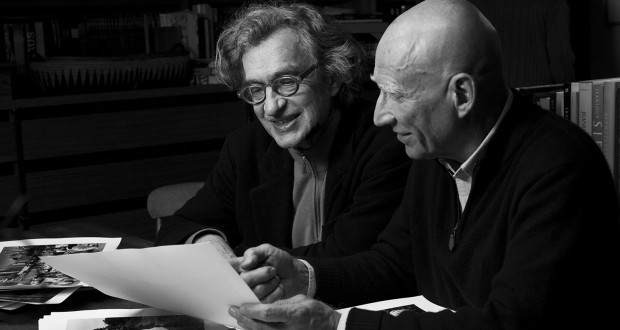
As we eagerly await Wim Wenders‘ next narrative effort, the James Franco-led 3D drama Every Thing Will Be Fine, the legendary director has been hard at work on another project, the documentary The Salt of the Earth. Exploring a globe-spanning journey of Sebastião Salgado, the famous Brazilian social documentary photographer and photojournalist, we haven’t seen any footage from the film (co-directed by his son), but with the talent both behind the camera and at the center, it will likely be something of great beauty. – Jordan R.
27. In The Name of My Daughter (André Téchiné)

Andre Téchiné remains one of France’s greatest treasures in contemporary cinema, though has remained only a curiosity beyond dedicated francophone cinephiles, supported through the 1990s by critics like Kent Jones and Jonathan Rosenbaum. In The Name of My Daughter follows a true story mystery from the 1970s, centered around the disappearance of a 29 year old daughter of a lucrative casino owner (Téchiné Gone Girl?). The film stars French cinema mainstays Guillaume Canet and Catherine Deneuve. – Peter L.
26. Red Army (Gabe Polsky)
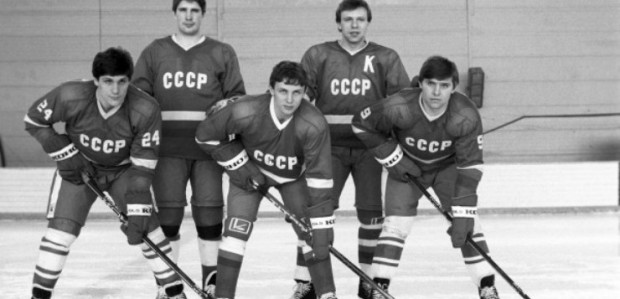
At the height of the Cold War, the US hockey team defeated the seemingly invincible USSR at the 1980 Winter Olympics, an event that went down as both a literal and symbolic victory. While the so-called Miracle on Ice has its share of reverence — including a 2004 film starring Kurt Russell — the losing team has disappeared into obscurity. Over three decades later, director Gabe Polsky, with the help of executive producers Werner Herzog and Jerry Weintraub, shows what went on behind the Iron Curtain in a documentary about the human side of a well-oiled sports machine. With archival footage and interviews aplenty, the film should make for an illuminating and entertaining history lesson. – Amanda W.
25. The Blue Room (Mathieu Amalric)
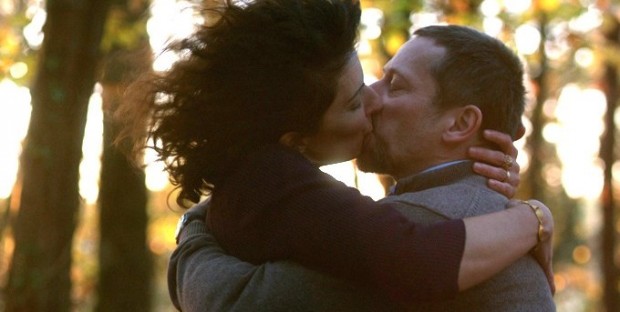
Though far more well-known for work with the likes of Desplechin, Cronenberg, (Wes) Anderson, Spielberg, Resnais, Assayas et al., Mathieu Amalric does, on occasion, take his own steps behind the camera. Making what may be his highest-profile directing turn yet, one of the world’s finest actors has made what, by all existing accounts, sounds to be a romantic thriller of unbearable intimacy. If it’s no more than some good pulp, fine — at least he’s never one to try something outside the main profession. – Nick N.
24. It Follows (David Robert Mitchell)

While it went overlooked, The Myth of the American Sleepover was one of the better directorial debuts of recent years and now director David Robert Mitchell will be stepping things up in a big way, premiering his follow-up at Cannes. It Follows looks to be a refreshing horror indie, one that’s described as “artful psychosexual thriller” tracking a teenager whose life is altered by the notion that a threat is approaching. Starring Maika Monroe, Keir Gilchrist, Daniel Zovatto, Jake Weary, Olivia Luccardi, and Lili Sepe, it will premiere in the Critics Week line-up, the only American film to do so this year. – Jordan R.
23. Maiden (Sergei Loznitsa)
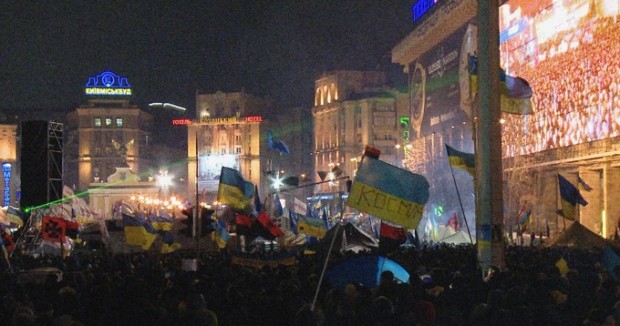
After My Joy and In The Fog, Sergei Loznitsa has emerged as a compelling name in Ukrainian cinema, giving a voice to the post-colonial state through his rigorous formalism in both aesthetics and narrative. His newest film returns him to his documentary roots to the current crisis alongside the Ukraine-Russia border and the political turmoil there. The film was still being shot at the time of the film’s inclusion in the festival, making it’s certainly the most timely film to appear at the festival. – Peter L.
22. Captives (Atom Egoyan)
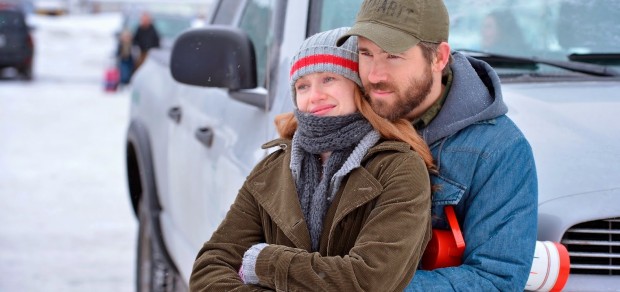
While his latest feature, the West Memphis Three drama Devil’s Knot, goes quietly into theaters and VOD this month, Atom Egoyan will also be gracing Cannes Film Festival with his upcoming Captives amongst the competition drama. Starring Ryan Reynolds as a father whose child goes missing under mysterious circumstances, the first trailer sold a potentially compelling drama. It looks to follow suit after last year’s successful Prisoners, and hopefully marks a return to form for Egoyan, who excelled with exploring loss in The Sweet Hereafter.- Jordan R.
21. Jauja (Lisandro Alonso)
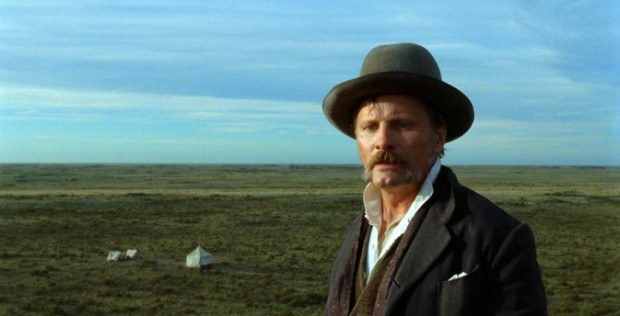
One of the most radical filmmakers of the last decade, Argentina’s Lisandro Alonso returns to the Croisette with his first film to not only star an actual actor, but none other than Viggo Mortenson. Whether Jauja, a period piece shot in 1.34 aspect ratio, will continue Alonso’s documentary hybrid form (his debut film, La Libertad, follows a wood cutter who chops a tree and grills an armadillo) is uncertain, but the mystery surrounding what the director (who hasn’t had a film since 2008) will bring with this ambitious new step has many excited. – Peter L.
20. Welcome to New York (Abel Ferrara)
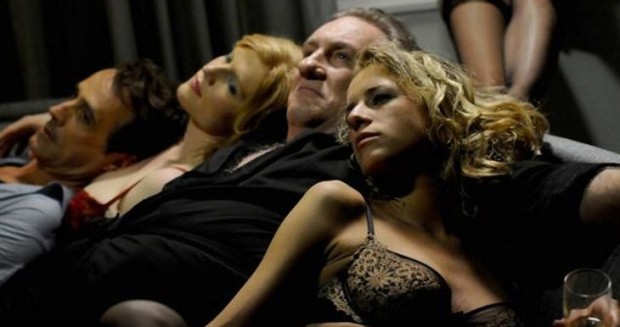
Months after the re-release of his rape-revenge film Ms. 45, writer/director Abel Ferrara returns to the big screen with his first original work in three years. Much like his previous films, the controversial filmmaker captures the nasty side of his beloved city with his take on the Dominique Strauss-Kahn scandal. Gerard Depardieu has received praise for his portrayal of George Devereaux, a fictionalized version of the real-life IMF chief who, in 2011, was accused of sexually assaulting a housekeeper in an upscale Manhattan hotel. The combination of Depardieu’s performance and Ferrara’s style should provide a bold study of the corruptive effects of privilege. – Amanda W.
19. Leviathan (Andrey Zvyagintsev)
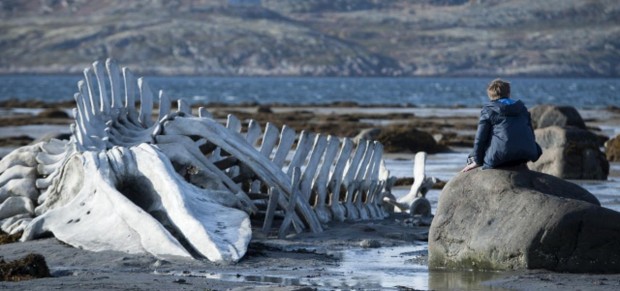
Not to be confused with one of the best documentaries of the last decade, the next film from Russia’s Andrey Zvyagintsev marks his follow-up to the acclaimed Elena. Described as a social drama that follows multiple character, it has major intentions, dissecting “the human insecurity in a new country which gradually unwinds to a mythological scale concerning the human condition on earth entirely.” Considering he crafted one of my favorite dramas, The Return, I’ll always be looking forward to what Zvyagintsev directs next and his latest will be in competition at Cannes. – Jordan R.
18. The Tale of Princess Kaguya (Isao Takahata)
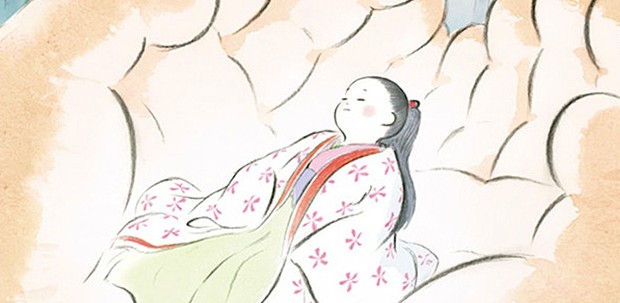
The worlds of Studio Ghibli have always been fascinating to live in, but for an upcoming film the Japan-based outfit looks to be headed in an entirely new direction. Coming from Grave of the Fireflies director Isao Takahata, The Tale of Princess Kaguya (Kaguya-hime no Monogatari) seems to be using a style invoking watercolor animation and after a release in its native country, it’s stopping by Cannes. The story follows a bamboo cutter, Taketori no Okina, who slices open a stalk to find a thumb-sized baby inside, one who grows into a princess named Kaguya. When she grows up, she calls upon five pining men to find memorably wedding gifts for her. – Jordan R.
17. Coming Home (Zhang Yimou)
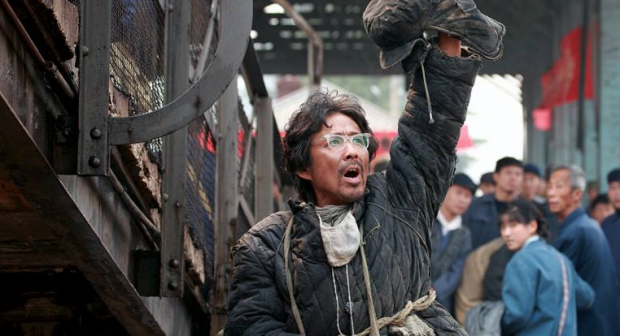
It’s directed by Zhang Yimou, it made Steven Spielberg cry like baby, and it’s premiering at Cannes Film Festival as a special screening; there’s not much else we need to know to get on board for Coming Home, the latest film from helmer behind Hero and House of Flying Daggers. Spanning an epic stretch from the 1920′s to the 1990′s, the story follows a husband’s (Chen Daoming) extended separation from his family (notably his wife, played by Gong Li) and his eventual return. Displayed in 4K IMAX in China, we imagine Sony Pictures Classics won’t be releasing it the format here, but one can check out the trailer as we wait for release details. – Jordan R.
16. The Salvation (Kristian Levring)
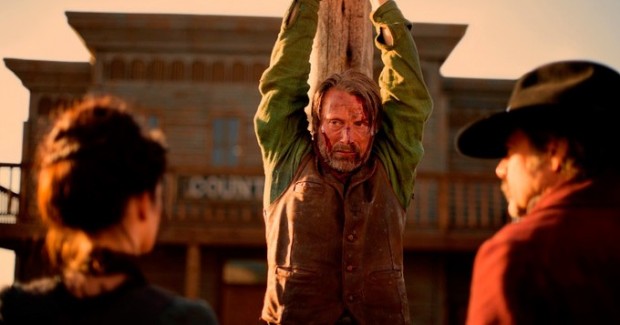
Coming off his Best Actor win at Cannes two years ago for The Hunt, The Salvation marks the return of Mads Mikkelsen to the festival. Directed by Kristian Levring, we got a promising trailer for the western which follows the actor in the 1870’s as an American settler who must defend his life from the murderers who killed his family. Starring Eric Cantona, Eva Green, Mikael Persbrandt and Jeffrey Dean Morgan, it looks like gripping stuff and something we can’t wait to see. – Jordan R.
15. Jimmy’s Hall (Ken Loach)
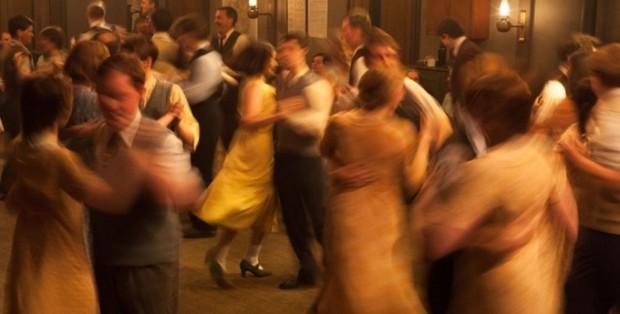
Ken Loach is returning to Cannes this year and thankfully Jimmy’s Hall won’t be his latest feature, as previous talk suggested. Set in 1932 Ireland, the film follows James Gralton (Barry Ward), a local communist leader who returns, after a decade-long stay in New York, to open an old dance hall designed for celebrating the spirit of the free thinkers who want to learn, argue, dream and have fun. This one looks more in line with his Palme d’Or-winning The Wind That Shakes the Barley, so hopefully great things are in store. – Jordan R.
14. Saint Laurent (Bertrand Bonello)
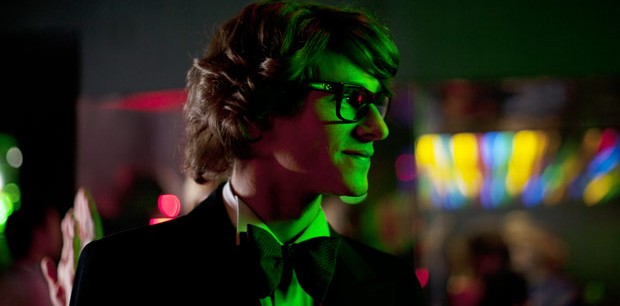
A short amount of time has been awfully kind to House of Pleasures, which only looks more and more like one of the decade’s great films. Bertrand Bonello‘s follow-up, Saint Laurent, may seem more conventional on paper — a biopic of the eponymous fashion designer, filled with plenty of familiar historical faces along the way — but that remains to be seen; in the meantime, it’s one of our most-anticipated pictures of 2014, period. – Nick N.
13. The Homesman (Tommy Lee Jones)
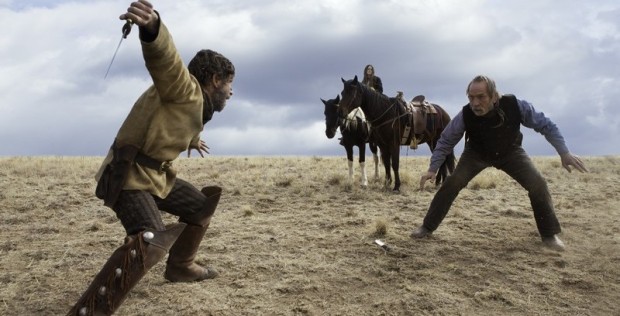
While he directed the TV movie The Sunset Limited a few years ago, Tommy Lee Jones‘ last theatrical feature was 2005’ s The Three Burials of Melquiades Estrada. He’s now returning nearly a decade later with the western drama The Homesman. Adapted by Jones himself from Glendon Swarthout‘s novel, the story follows him as a down-and-out man who gets recruited to take three women on an odyssey from Nebraska to Iowa. After an impressive trailer, we’re always in a good mood for another worthwhile entry in the genre. Led by Hilary Swank, Hailee Steinfeld, Meryl Streep, Tim Blake Nelson, James Spader, William Fichtner, and Jesse Plemons, The Homesman will be competing for the Palme d’Or. – Jordan R.
12. Lost River (Ryan Gosling)
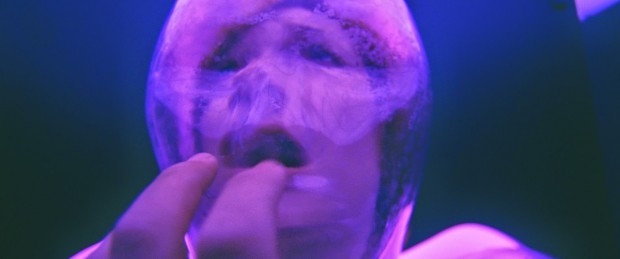
One of the biggest curiosities of the Cannes line-up is the directorial debut of Ryan Gosling, Lost River. After working with Terrence Malick, Nicolas Winding Refn, and Derek Cianfrance, he’s certainly built up some knowledge behind the camera, and with nods to David Lynch, he has our interest. Set against the surreal dreamscape of a vanishing city, the film follows Christina Hendricks as a single mother of two who is swept into a macabre and dark fantasy underworld, and judging just from the still above, I suppose we can expect the unexpected. – Jordan R.
11. National Gallery (Frederick Wiseman)
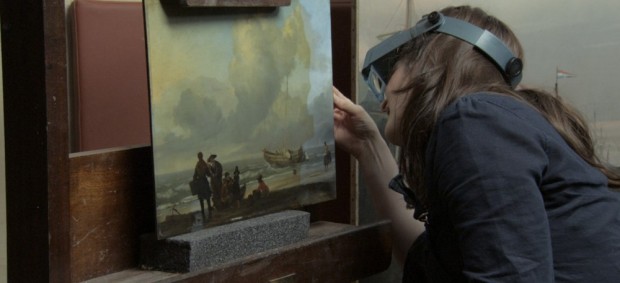
Only a year after his latest documentary arrived in theaters, easily marking one of the finest of the year, master filmmaker Frederick Wiseman will go from the education system to the art world with National Gallery. Clocking in at 174 minutes, it’s remarkably shorter than his last work and follows the London-based museum, specially “255 of the Gallery’s paintings and portrays the day to day work of curators, conservators, art handlers and the education, scientific, and restoration departments as well as the response to the collection of some of the thousands of people who visit each day.” – Jordan R.
10. Mommy (Xavier Dolan)
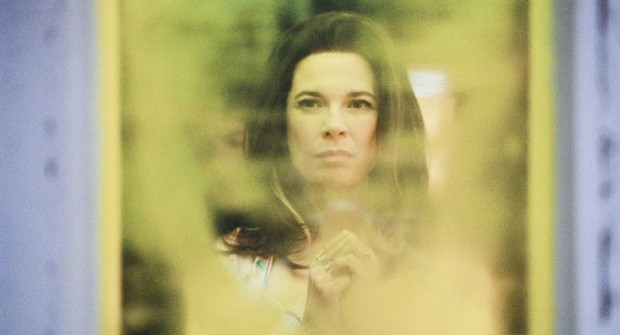
Finally amongst the competition for the Palme d’Or at Cannes Film Festival, after a number of features in sidebars here in years past, Mommy marks a step-up for Canada’s Xavier Dolan, at least on the service. While not a great deal of plot details are known, it is said to tell a darker story of a mother-son relationship, featuring a custody battle and a child with a difficult past. With previous collaborators Anne Dorval, Suzanne Clément and Antoine-Olivier Pilon all returning, hopefully this marks another excellent feature for Dolan after Laurence Anyways, and a reminder that Tom at the Farm still needs U.S. distribution. – Jordan R.
9. Goodbye to Language (Jean-Luc Godard)
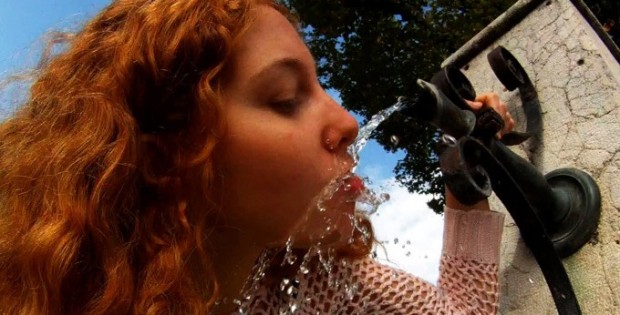
The greatest living filmmaker (if to already get the hyperbolic ball rolling) returns with a 3D feature, of all things, though that doesn’t mean you should expect Mr. Godard to suddenly go commercial. If anything, this could potentially be the peak of his post-film experimentation, which have included both video and digital, all in his constant pursuit of… well, that can sometimes be hard to exactly articulate. But you should look forward to trying, anyway. – Ethan V.
8. Foxcatcher (Bennett Miller)
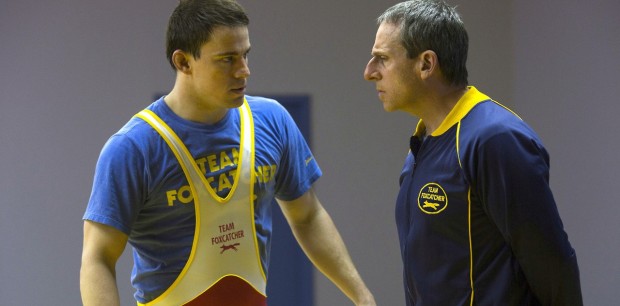
After a few starts and stops, including a scrapped premiere at the 2013 AFI Fest, the biographical drama from Bennett Miller (Moneyball) will finally see its debut. The event can’t come soon enough, as critics and audiences alike are anticipating a thrilling account of the 1997 murder of Olympic wrestler Dave Schultz (Mark Ruffalo) at the hands of his friend, millionaire John du Pont (Steve Carell). While the film boasts a stellar cast, with Channing Tatum, Sienna Miller, and Vanessa Redgrave in supporting roles, all eyes will be on funnyman Carell as he tackles the challenge of playing the older, mentally ill du Pont. – Amanda W.
7. Mr. Turner (Mike Leigh)
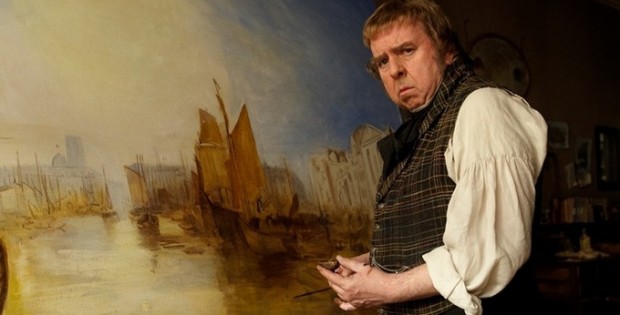
Mike Leigh’s biographic work, including Topsy Turvy and Vera Drake, are as emotionally fresh as his intimate social realist portraits of contemporary family. His latest Mr. Turner, which will compete for the Palm d’Or, reunites Leigh and frequent collaborator Timothy Spall as J.M.W. Turner, best known as a “painter of light” in what will be Leigh’s first foray into digital filmmaking and what’s shaping up to be one of the most promising films in the line-up. – Jordan R.
6. Timbuktu (Abderrahmane Sissako)
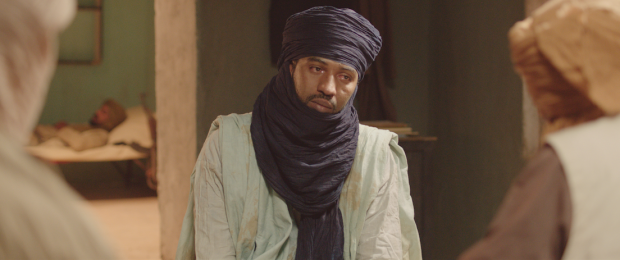
Many contemporary African filmmakers are coming from mixed backgrounds that make it hard to pin down a specific nationality, and no filmmaker has explored the contemporary issues between his Diasproa roots than Abderrahmane Sissako (born in Maruitanian, raised in Mali, schooled in Russia, now living in France). His fifth film follows a stoning of an unmarried couple in Northern Mali by a group of Islamists. After the poetic Waiting for Happiness and the politically charged Bamako, Sissako’s voice will hopefully continue to grow and create more interest in African cinema with this latest feature. – Peter L.
5. The Rover (David Michôd)
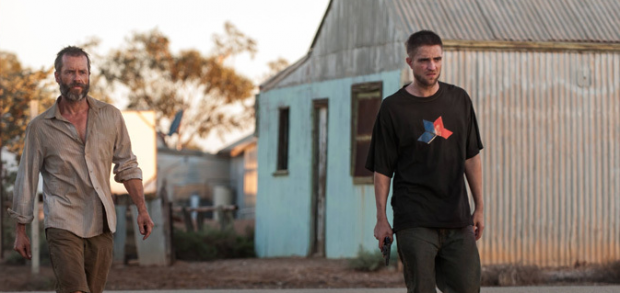
For (seemingly) diverging from the gangster territory of his narrative feature debut, Animal Kingdom, David Michôd gives the impression of a writer-director with little interest in sticking to the same formulas, no matter how successful they’ve proven. (Consider, however briefly, that his only other full-length project is a documentary about a missing kayaker.) Robert Pattinson and Guy Pearce going head-to-head in a desolate, near-future Australian outback, leading to… well, that much remains to be seen. Based on what little is known, the film, which premieres in the Midnight selection at Cannes Film Festival, might pack more thrills than just about anything put in theaters during the sweltering season when it arrives next month. – Nick N.
4. Maps to the Stars (David Cronenberg)
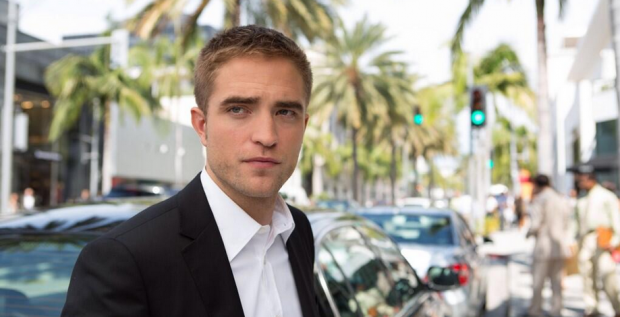
When the trailers for David Cronenberg’s Hollywood drama Maps to the Stars dropped in April, the response was rapturous. And why wouldn’t it be? The two-minute preview was loaded with famous faces — Cronenberg’s Cosmopolis star Robert Pattinson as a limo driver, a compellingly disturbed Mia Wasikowska, Julianne Moore as a Tinseltown diva, a more forceful John Cusack than we’ve seen in years — and contained eyeball-scorching imagery, as well as tantalizingly brief hints of story. The film’s official synopsis tells of a “loathsome yet funny and touching child-star,” and a “convoluted world of shallow, selfish celebrities and their minions,” which certainly sounds like the world of screenwriter Bruce Wagner. But this “haunting ghost story” also feels like an ideal playground for the great Cronenberg, a filmmaker better than almost anyone else at analyzing warped, infected minds. Maps is his fifth Cannes feature, following Crash, Spider, A History of Violence, and Cosmopolis; he was president of the jury in 1999. While Crash earned a “special jury prize for “originality, daring, and audacity” (along with its share of boos), Cronenberg has never taken home major Cannes honors. It would be fitting to see his Hollywood psychodrama take top honors at a festival far away from the California sun. – Chris S.
3. Clouds of Sils Maria (Olivier Assayas)
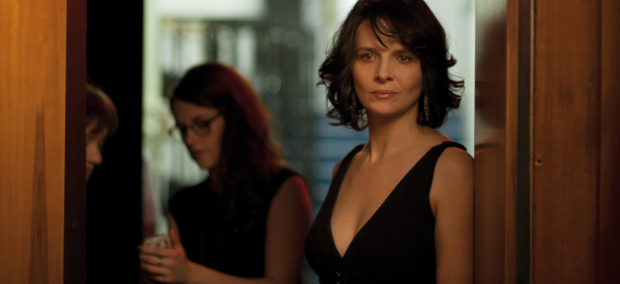
Olivier Assayas’s last three slow-burn masterpieces — Summer Hours, Carlos, and Something in the Air — felt like the work of a director at the top of his game. His newest creation, Clouds of Sils Maria, sounds just as ambitious as that trio, and, in a bit of a surprise, infinitely starrier. Juliette Binoche, Kristen Stewart, and Chloë Grace Moretz are the leads of a film whose poster rather winkingly ignores the oft-photographed faces of Binoche, Stewart, and Moretz for a gorgeous shot of mountaintops in the Alps peaking through, yes, the clouds. Assayas’s script is about a famous actress (Binoche), her assistant (Stewart), and the young star “with a penchant for scandal” (Moretz). Centered around rehearsals for a play, Moretz’s starlet is tackling the part played two decades before by Binoche’s character, a complex scenario that seems delightfully spark-inducing. It is always a treat to see Binoche onscreen, but it is the presence of Moretz, and, especially, Stewart that most intrigues. This project is quite different from their recent output, and certainly more character-driven. Clouds might offer Stewart and Moretz their meatiest parts to date. Somewhat surprisingly, Assayas is seeking his first-ever Cannes victory. – Chris S.
2. Two Days, One Night (Jean-Pierre and Luc Dardenne)
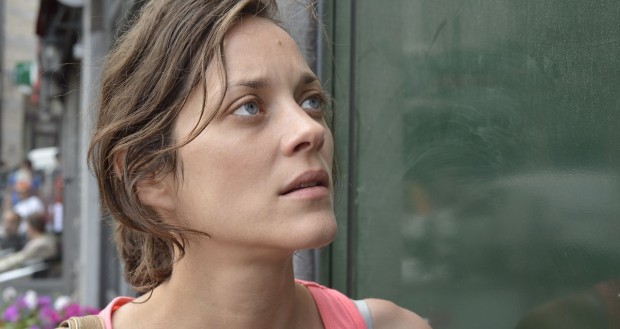
The pairing of Jean-Pierre and Luc Dardenne with the inordinately talented Marion Cotillard feels like one of those Belichick-Brady matches made in heaven, minus the obnoxious factor. (Perhaps Bill Walsh-Joe Montana is a better fit?) Two Days, One Night is the result of this collaboration, and the timely tale — a woman must convince her work colleagues to forego their annual bonuses so she can keep her job — sounds ideally suited for the directors and their star. The Dardennes last visited Cannes with the underrated drama The Kid With a Bike, another moving effort that took home the festival’s Grand Prix. The brothers’ success on the Croisette is almost a given at this point; they are two-time winners of the Palme d’Or, and even a “lesser” film like Lorna’s Silence earned screenplay honors. Cotillard, arguably the most consistently fine actor in cinema, has never won the Best Actress award at Cannes and given the Dardennes’ reputation for bringing out the best in their leads — see Émilie Dequenne in Rosetta, Jérémie Renier in The Promise and The Child, and Olivier Gourmet in The Son, among others — it is not unreasonable to imagine Two Days, One Night earning a spot on the actresss’ growing list of unforgettable roles. – Chris S.
1. Winter Sleep (Nuri Bilge Ceylan)
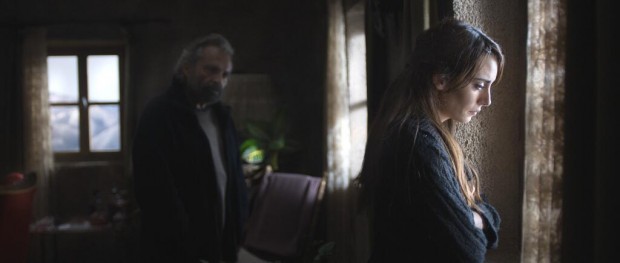
One of the sight-unseen frontrunners for the Palme d’Or, this new film from Turkish director Nuri Bilge Ceylan arrives three years after his previous Once Upon a Time in Anatolia, and its gargantuan 196-minute runtime marks it as the longest film in Competition. In a venue like Cannes, however, a three-hour-plus length ought not to appear all that intimidating or even unusual, and the fact that Anatolia itself was a prolonged exercise—two-and-a-half hours of judiciously sustained patience and restraint—further signals Winter Sleep as a continuation of Ceylan’s interest in and general command of pacing. That plot details remain vague at this point is to be expected; more pertinent to the movie’s promise are the gorgeous images teased on the first batch of posters—including this one, which, save for the pockets of snow, looks straight out of the winding roads that defined Anatolia. – Danny K.
The 2014 Cannes Film Festival begins on May 14th. Follow our complete coverage on Twitter and here.
What’s your most-anticipated film amongst the line-up?

